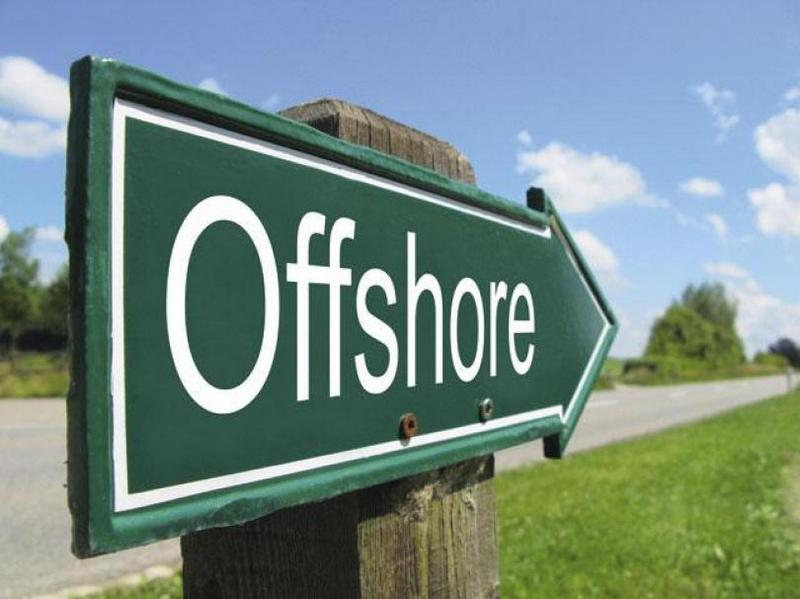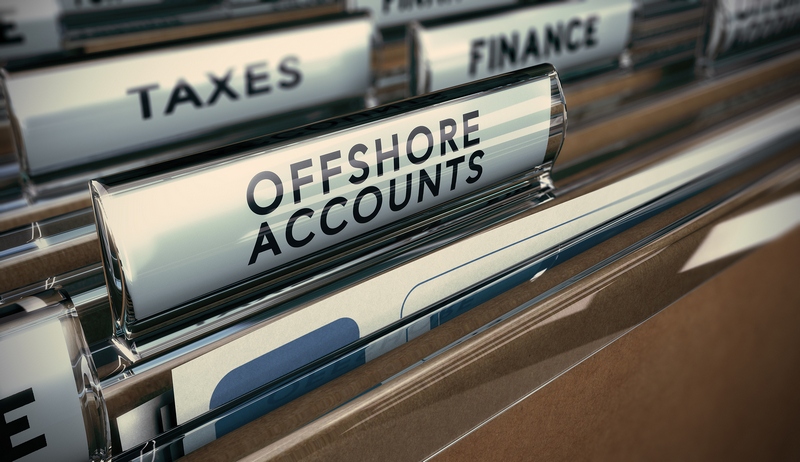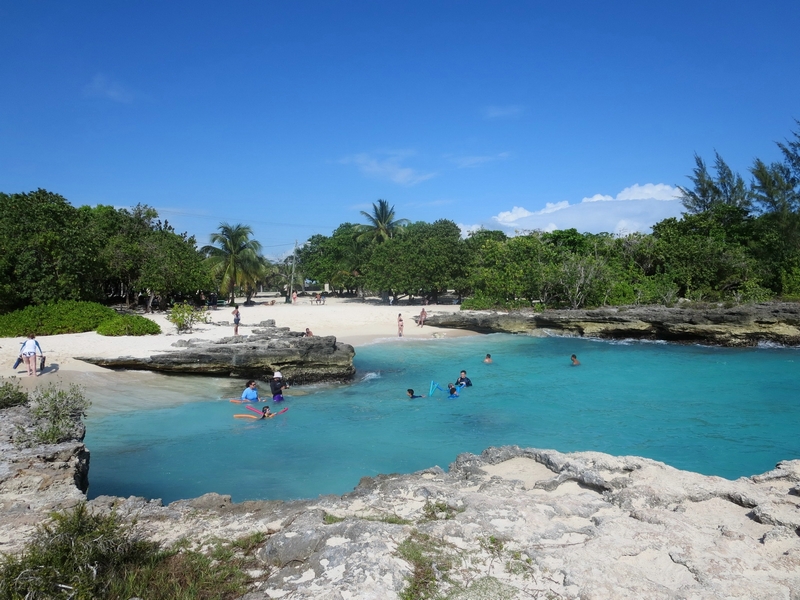Business Tool: What are Offshore Entities?

💡 Want more business insights? Stay ahead of the curve with our exclusive updates!
👉 Join our Telegram channel for daily business ideas and expert tips.
👉 Follow us on Facebook to never miss a trend or update!
Don’t just read—connect, grow, and innovate with us today!
Usually, practical interest in offshore activities arises when an entrepreneur, company, or group actively engage in trade at major ports worldwide. It is essential to understand that offshore operations are a form of conducting business, similar to crowdfunding, tax planning tools, and simplification of most reports while remaining within the legal framework.

The term "offshore" can be translated into English as "offshore," "free zone," or "open sea location." This reflects the traditions and history of offshore zones worldwide. The modern meaning is more comprehensive. Offshore is an economic and organizational concept that denotes the method of conducting business in special economic zones with simplified administrative or tax systems.

Many of us have heard that offshore activities are often used for money laundering, including proceeds from illegal activities such as bribery, drug trafficking, arms trading, and even human trafficking. In reality, the use of offshore zones is not a new tool; it has been around for over 300 years. Many macroeconomic analysts believe that the level of trade development is closely linked to the existence of "free" zones. The logic is simple – if every ship and trading company operating cargo were subject to the high taxes of developed countries, they would go bankrupt after just a few voyages. Additionally, during one voyage, a cargo ship may visit over 20 countries, each requiring reports and tax declarations based on the rules and laws of the receiving country. In simple terms, conducting commercial freight and international trade becomes unprofitable or even impossible.
What Does a Company Owner in an Offshore Zone Get?

The first thing to know about offshore zones is that depending on the offshore center, you can enjoy various benefits. Each has its own specifics and nuances regarding registration, tax document filing, license fees, etc.
Most companies registered in offshore zones enjoy the following advantages:
- Ability to conceal information about business owners, co-founders, shareholders;
- Greatly reduced bureaucratic hassle, crucial for investments;
- No tax inspections, hence no fines, administrative or criminal liabilities;
- Protection against hostile takeovers;
- Complete business confidentiality;
- Minimal oversight from the offshore zone (some centers may require only one "tax" - a business license with a cost of $200-300 USD/year);
- Protection of financial information (intelligence agencies, Interpol, private detectives, and especially tax authorities cannot access reports of your financial activities);
- Avoidance of several common taxes, including inheritance tax, lottery winnings tax, property transfer tax.

These conditions are practically ideal for conducting illegal activities, hiding inheritances, or avoiding taxes. However, many entrepreneurs and prominent business figures choose this business form to simplify reporting. They can engage in operations with non-residents of the offshore area tax-free, in any foreign currency, anonymously, and swiftly.
If you plan to restructure your business operations through offshore entities, a thorough audit is necessary to ensure compliance not only within the offshore zone's legal framework but also in the country where you reside and conduct business.

Through offshore entities, you can conduct operations globally, for example, buying dairy products in Belarus, selling them in Moscow, and purchasing industrial equipment for Mongolia. All reporting and accounting are formally carried out under the auspices of a "single office." However, bear in mind that some business ideas can be unsuccessful or even absurd, so calculate risks carefully.
A Bit of History
The first legal proceedings on the legitimacy of offshore zones took place in England in the 17th century. They revolved around merchants not paying taxes due to their active involvement in international trade.
In Russia and the CIS, the "golden age" of offshore zones began in 1991 after the collapse of the union. Resourceful businessmen actively transferred money from fragile economies, evaded taxes, and hid illegally obtained funds. The most popular zones then were the Dominican Republic, Belize, and countries in the Caribbean basin. Surprisingly, some European countries are also considered "low-tax" zones, offering a less transparent form of traditional offshore services. A prime example is Liechtenstein and Luxembourg.
Offshore Zone Ratings:
- United Arab Emirates
 – zero taxes, reporting requirements, or commercial activity restrictions. A paradise for entrepreneurs involved in international trade with substantial turnovers;
– zero taxes, reporting requirements, or commercial activity restrictions. A paradise for entrepreneurs involved in international trade with substantial turnovers; - Belize
 – still one of the most attractive and profitable offshore zones worldwide. Business operations are greatly simplified, with no reporting obligations or taxes except for licensing, and utmost emphasis on confidentiality. Belize does not disclose financial reports even to international organizations (except in certain warranted and confirmed cases);
– still one of the most attractive and profitable offshore zones worldwide. Business operations are greatly simplified, with no reporting obligations or taxes except for licensing, and utmost emphasis on confidentiality. Belize does not disclose financial reports even to international organizations (except in certain warranted and confirmed cases); - British Virgin Islands
 – a rapidly growing and popular offshore zone with years of proven jurisdiction, no taxes, no reporting, and no audits;
– a rapidly growing and popular offshore zone with years of proven jurisdiction, no taxes, no reporting, and no audits; - Seychelles
 – not just a resort but a zone with simplified tax rules and multibillion-dollar turnovers. Complete confidentiality, easy and fast registration;
– not just a resort but a zone with simplified tax rules and multibillion-dollar turnovers. Complete confidentiality, easy and fast registration; - Cayman Islands
 – you've probably heard of them. A major offshore center ensuring confidentiality and protecting stakeholders' interests.
– you've probably heard of them. A major offshore center ensuring confidentiality and protecting stakeholders' interests.
In addition, consider jurisdictions like the Dominican Republic, Cook Islands, Panama, Anguilla, Hong Kong, and Singapore.
If you wish to showcase your company's status or solidity, you can utilize non-offshore centers known for low tax burdens and simple tax systems, such as the United Kingdom, Cyprus, Malta, and the Isle of Man. Share this article with your friends; they might be interested in offshore activities, finding the information valuable.
💡 Want more business insights? Stay ahead of the curve with our exclusive updates!
👉 Join our Telegram channel for daily business ideas and expert tips.
👉 Follow us on Facebook to never miss a trend or update!
Don’t just read—connect, grow, and innovate with us today!





































.jpeg)













Note: Comments are being moderated and may take a while to appear. There is no need to resubmit your comment.